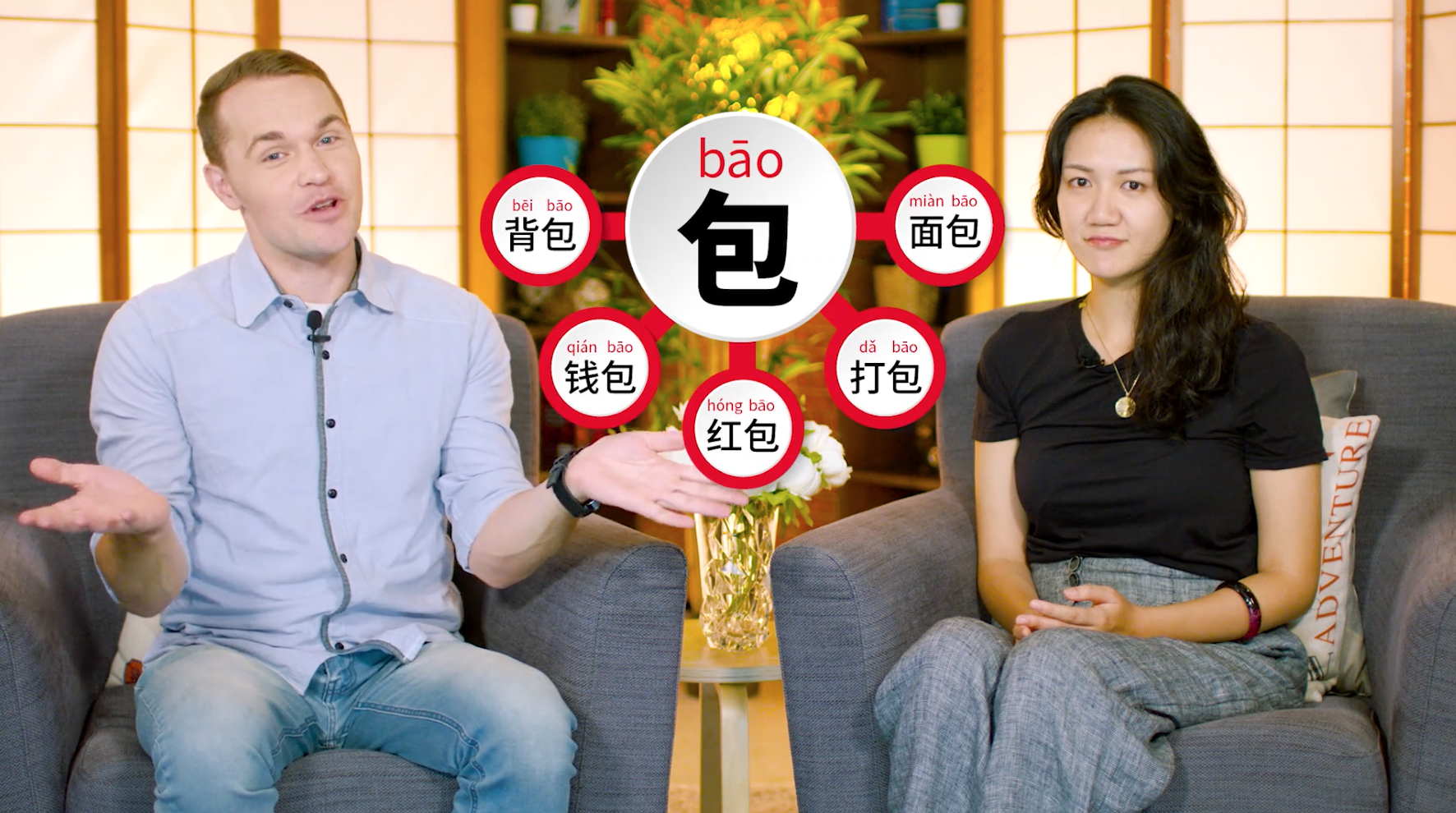Relevant Content
We'll always make sure you know exactly what the lesson is about. You
will easily understand whether it is relevant for you.
Translation Issues
Great Hosts
Here at ChinesePod, all our lessons are presented in an entertaining
manner by our great hosts. You'll find language learners, teachers,
and even professors sharing their insights, ideas, and teaching
methods in our video and audio lessons.
Brief Lesson Summaries
A brief introduction of the lesson will always tell you what this
lesson is about and what language level is the intended target. If
you're interested in the subject, but might not be able to understand
it in full, fear not; we have transcripts of lesson dialogues
vocabulary so you can follow along.
IN THIS LESSON
ID: 251 Upper Intermediate
If Pepsi’s slogan “Come Alive” can mean “Brings Your Ancestors Back from the Dead” after translation into Chinese, then there’s a good chance that you’ll find yourself lost in translation. We don’t want that to happen, so we want to help with this podcast in the form of a Mandarin Chinese lesson on translating.
Tue Sep 12 2006 | Jenny, John
Awesome Materials
Our lessons contain natural communication in Chinese
in video and audio format. We have have lessons focused on video or a
podcast format and our lessons have transcripts of Lesson Dialogues,
Important Vocabulary, Expanded Materials for a deep dive into the
lesson topic and Exercises focused on testing your retention.
Detailed Vocabulary
Each lesson has it's unique vocabulary and will provide you with
definitions and recordings so you can practice the pronunciation. You
will also be able to grasp the core material of a lesson at a glance.
Here we're showing you the Simplified Chinese version.
| SIMPLIFIED | PINYIN | ENGLISH | |
|---|---|---|---|
| 标准 | biāozhǔn | standard | |
| 翻译家 | fānyìjiā | translator | |
| 理论 | lǐlùn | theory | |
| 忠实 | zhōngshí | faithful to |
你做了这么久翻译,一篇好的翻译,最重要的标准是什么?
nǐ zuò le zhème jiǔ fānyì , yī piān hǎo de fānyì , zuì zhòngyào de biāozhǔn shì shénme ?
You've been doing translation for a long time. What is the ultimate standard for a good translation?
最著名的当然是翻译家严复先生提出的“信、达、雅”理论。“信”就是说忠实原文,“达”则是说贴切地表达原文,而“雅”是指用优雅的语言表达。人们常把“信、达、雅”挂在嘴边,其实,这是很难达到的文学翻译最高境界。能够达到这个黄金标准,当然是非常优秀的翻译。不过,只有中英文水平极高,并且有丰富实践经验的人才能达到这一点。
zuì zhùmíng de dāngrán shì fānyìjiā Yán Fù xiānsheng tíchū de “ xìn 、 dá 、 yǎ ” lǐlùn 。“ xìn ” jiùshì shuō zhōngshí yuánwén ,“ dá ” zé shì shuō tiēqiède biǎodá yuánwén , ér “ yǎ ” shìzhǐ yòng yōuyǎ de yǔyán biǎodá 。 rénmen cháng bǎ “ xìn 、 dá 、 yǎ ” guà zài zuǐ biān , qíshí , zhè shì hěn nán dádào de wénxué fānyì zuì gāo jìngjiè 。 nénggòu dádào zhège huángjīn biāozhǔn , dāngrán shì fēicháng yōuxiù de fānyì 。 bùguò , zhǐyǒu Zhōng Yīng wén shuǐpíng jígāo , bìngqiě yǒu fēngfù shíjiàn jīngyàn de rén cáiněng dádào zhè yīdiǎn 。
The most well-known is of course translator Mr. Yan Fu's theories of 'faithfulness to the original text', 'communication of ideas' and 'literary elegance'. People always talk about these, but actually these standards mark only literary translation of the highest quality, which is extremely difficult to achieve. Translation that can meet these ideal standards is, of course, excellent. But only those with high command of both the Chinese and English language along with years of practical experience can consistently maintain such a standard.
那么一般的翻译要具备什么条件呢?
nàme yībān de fānyì yào jùbèi shénme tiáojiàn ne ?
What capacities does an average translator need to have then?
这要看哪种翻译了。大致上分为笔译和口译。而翻译又各自有不同的领域。比如说,笔译有文学翻译,专业翻译,例如法律、医药、科技等等。而口译除了专业的分别,还有同声传译和交传的根本区别。
zhè yào kàn nǎ zhǒng fānyì le 。 dàzhìshàng fēnwéi bǐyì hé kǒuyì 。 ér fānyì yòu gèzi yǒu bùtóng de lǐngyù 。 bǐrú shuō , bǐyì yǒu wénxué fānyì , zhuānyè fānyì , lìrú fǎlǜ 、 yīyào 、 kējì děngděng 。 ér kǒuyì chúle zhuānyè de fēnbié , hái yǒu tóngshēngchuányì hé jiāochuán de gēnběn qūbié 。
That depends on which kind of translation you are talking about. There are two general types: written translation and oral interpretation, each of which has its own specific fields. For example, written translation involves literary and professional translation, which includes the fields of law, medicine, technology, and so on. There is also professional interpretation, which is also further divided up into simultaneous and consecutive interpretation.
Natural Dialogues
Each lesson is centered around a natural dialogue with key vocabulary
directly prepared and translated for your use. You can also
listen to each sentence as an individual recording to
improve your listening and comprehension skills.
Try It For Free
ChinesePod is 100% Free to Try. Create an account
today and get started!
Sign Up
Please enter a valid email.
- or -
Sign up with

